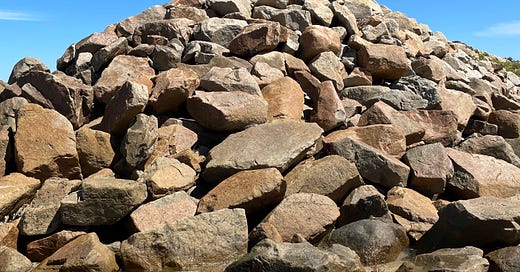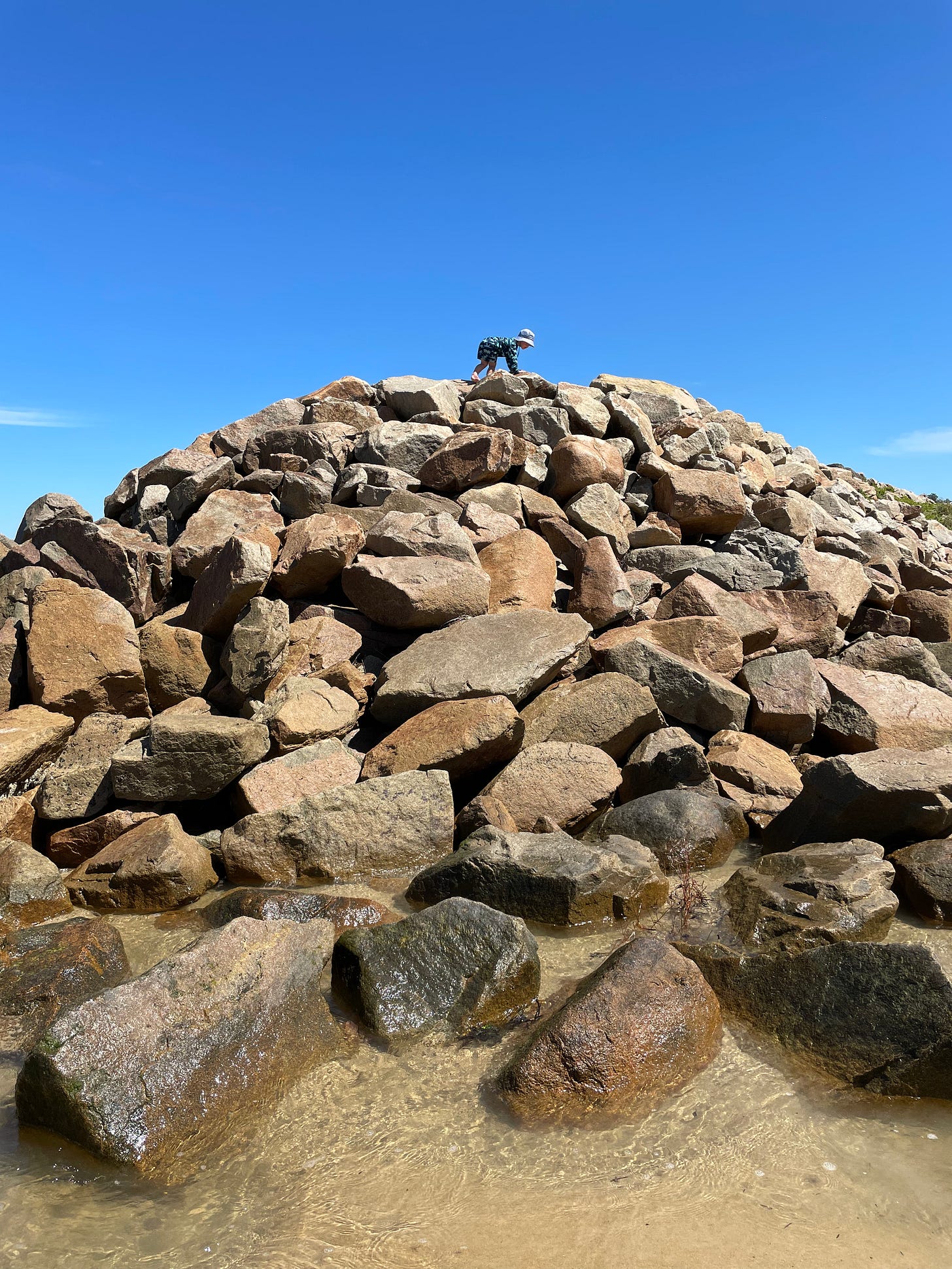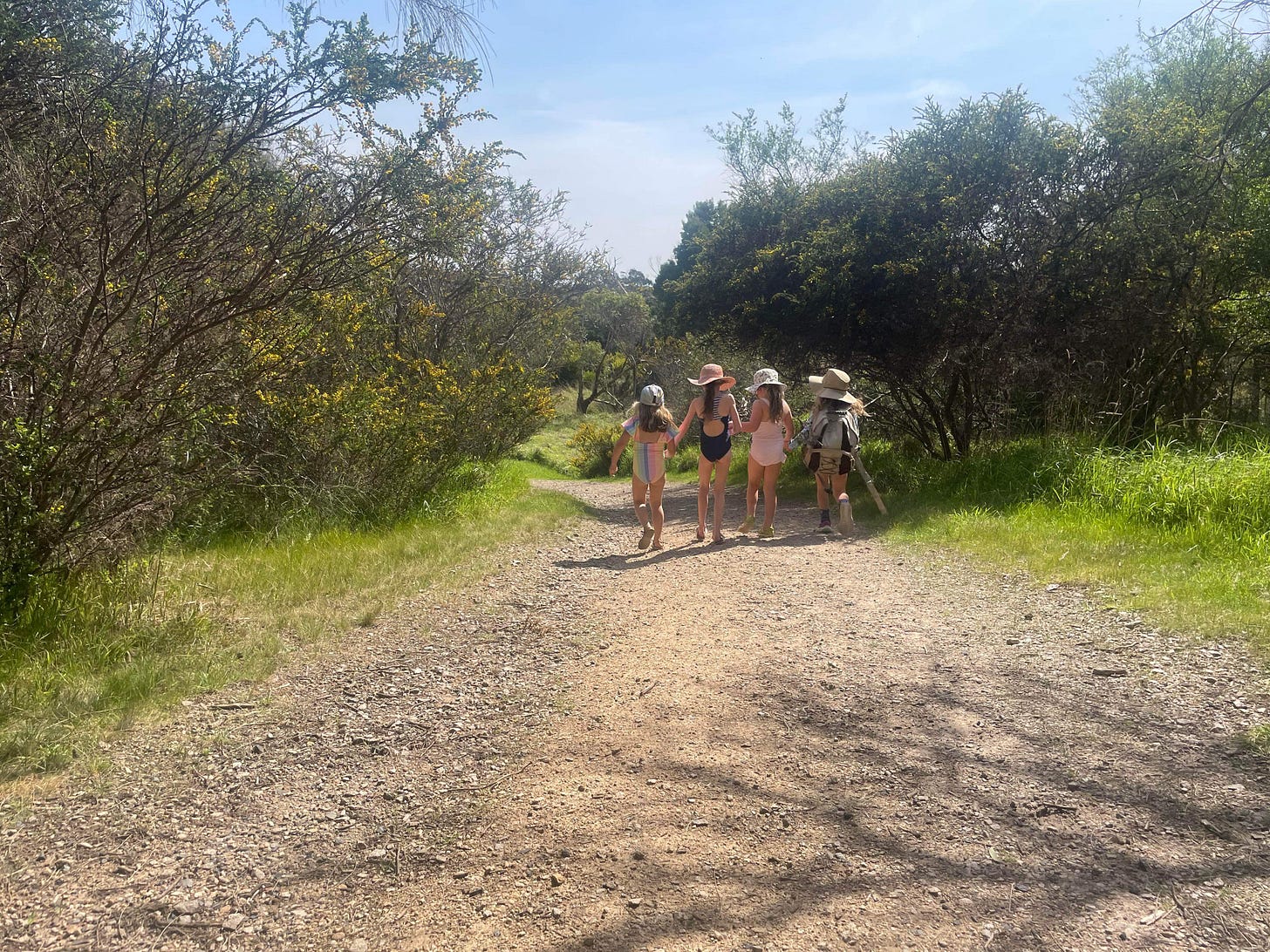This article was recently published in issue 178 of Otherways Magazine, Australia's longest running alternative education publication, produced by the Home Education Network (HEN), November 2023
We live, learn and play on the Mornington Peninsula, Bunurong Country. It is the most biodiverse region in all of Victoria with 60+ Ecological Vegetation Classes (EVCs). Beauty abounds in a multitude of terrains where 70% of land is green wedge protected and includes national and state parks, Ramsar wetlands and beaches a-plenty. Home educating here, we are spoilt for choice in places to gather and immerse ourselves in the natural world.
Our group began with the vision of one mother who wanted to build a local homeschooling community and over time it has grown and evolved. We’ve experimented with hiring a hall some terms but found that both adults and children thrive best with unstructured free play in nature. Each week families with kids, presently ranging in age from 1 - 8 years old, meet weekly around the Peninsula to adventure and play together. Rain or shine we congregate to bond and build connections with each other as well as with our local environment. There are no educational expectations of our meetups, we believe and have seen first-hand learning opportunities arise organically from simply being in the great outdoors.
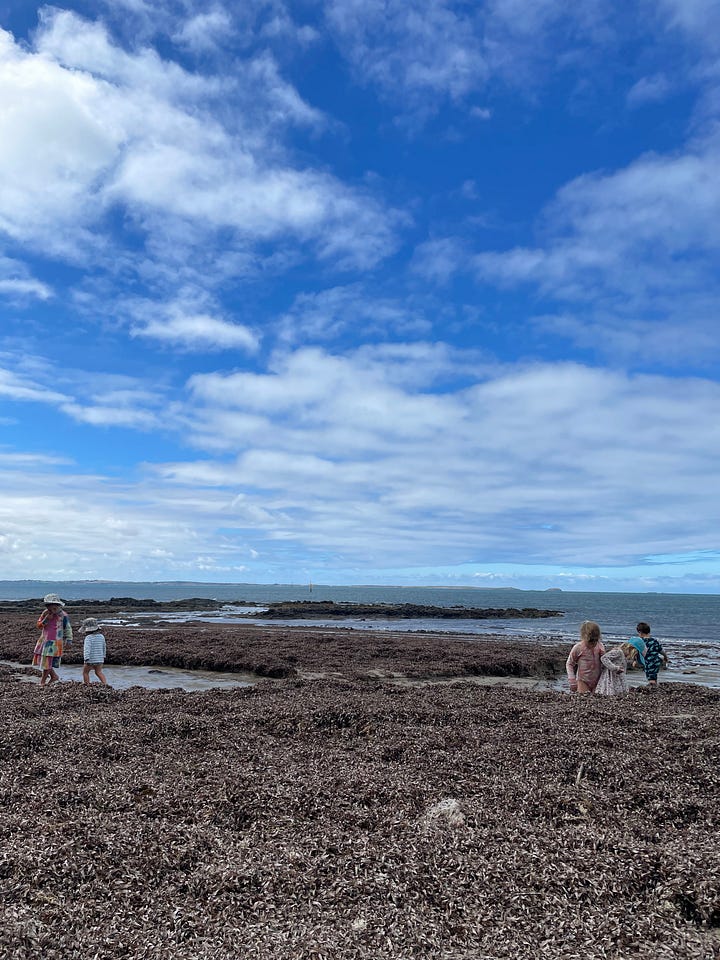
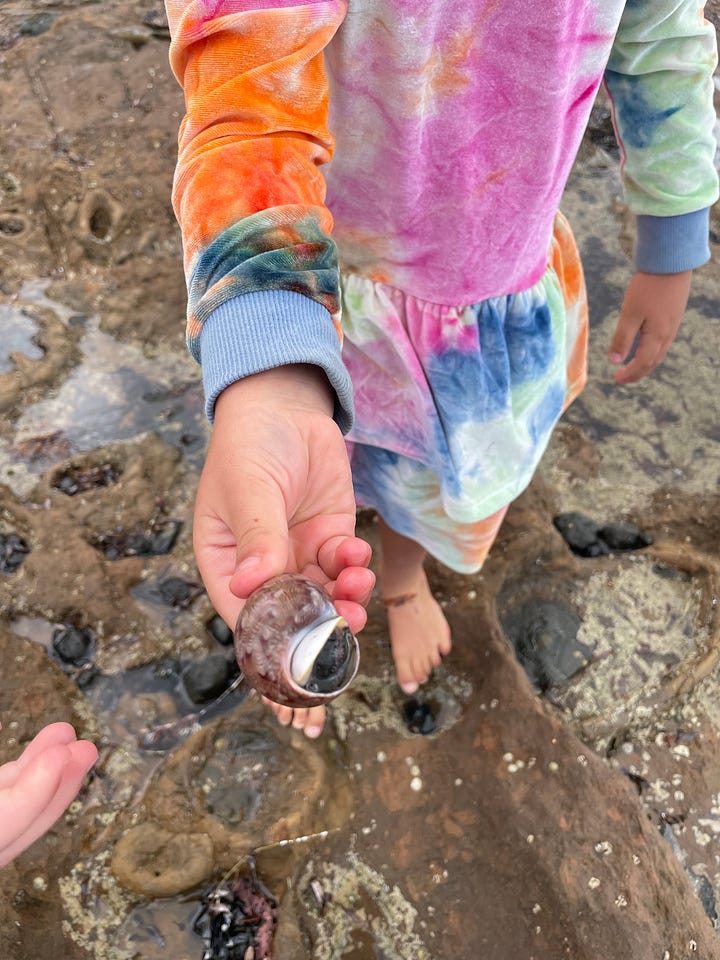
Some homeschooling groups prefer to meet in the same place each week for consistency but living where we do lends itself to adventure and exploration. There are boundless, awe-inspiring landscapes to discover and nourish a deep connection with nature. Together we are tangibly mapping our area, whilst building an appreciation for and understanding of our place in the local ecosystem. We have our favourite haunts, particular spots where the seasonal shifts can most prominently be admired, that we often return to throughout the year, but for the most part we are endeavouring to expose our kids to as many interesting and intriguing places as we can.
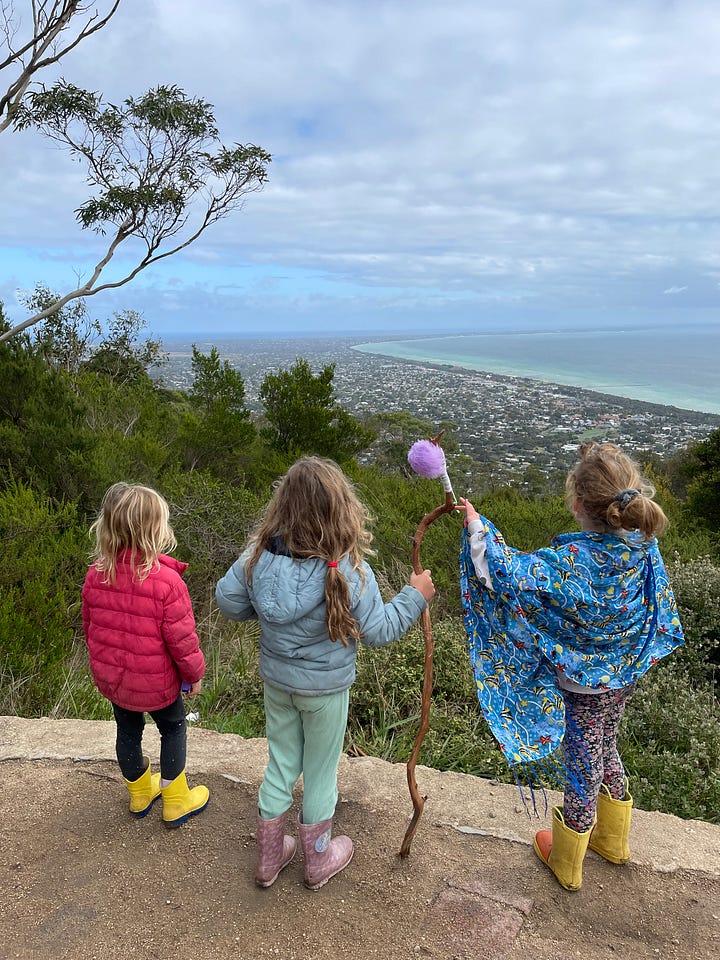
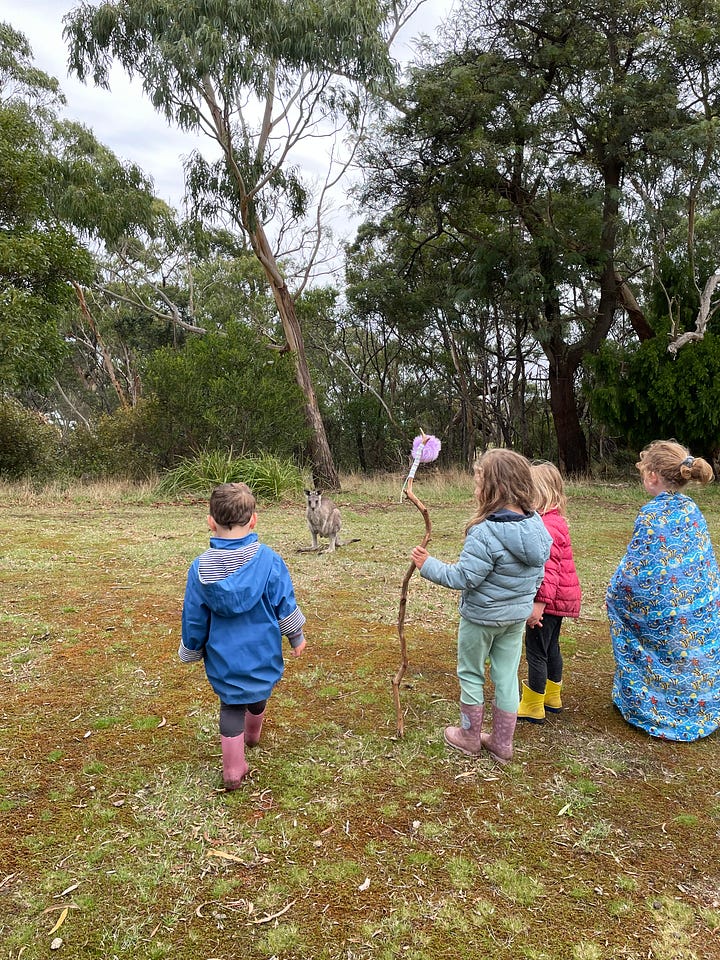
Together, we’ve delighted in wild dolphins swimming in the bay, observed Masked Lapwings fiercely protecting their nests, fashioned fallen log shelters in our much adored pine forest, tracked animal scats on bush walks, identified unusual insects, spied on shorebirds from hides, rambled in rock pools for starfish and sea slugs and picked wildflowers to weave daisy chains. Whether bird watching, cloud spotting, nature journaling, fort building, tree climbing, puddle hunting, flower collecting or dune scrambling - the possibilities for play and connection to nature are endless.
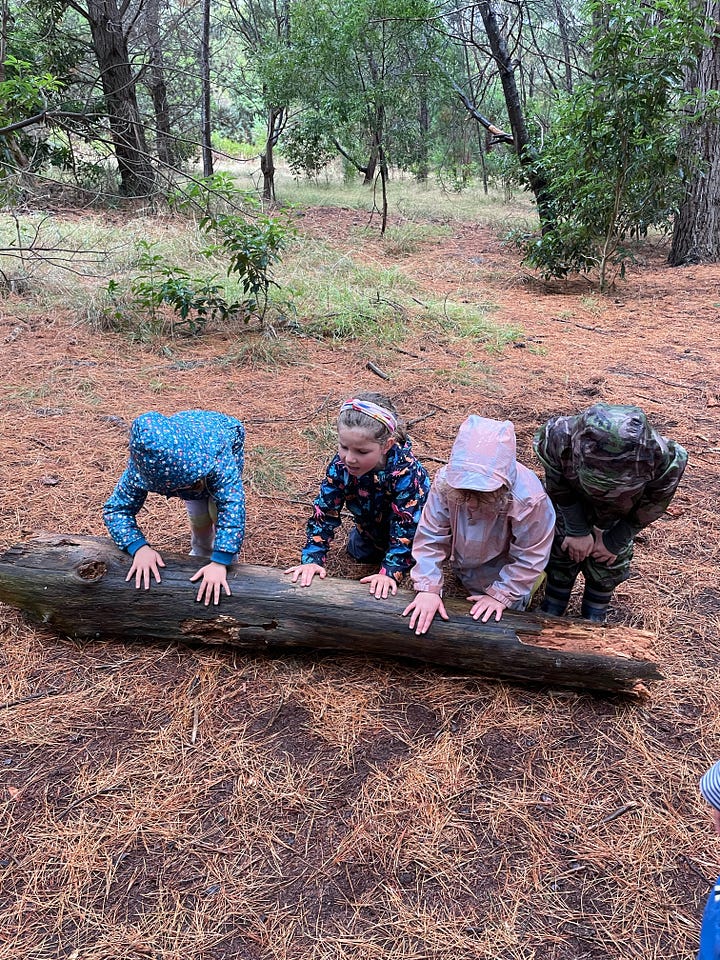
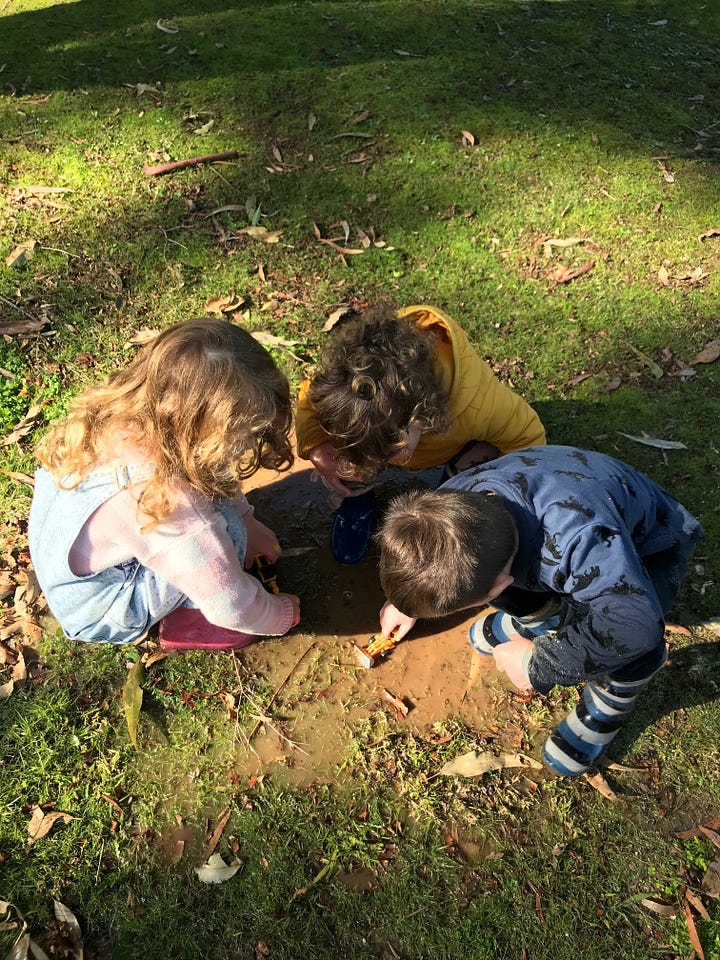
Likewise imaginative play abounds where our children have freedom to move their bodies, interact with their environment and simply roam. It has been beautiful to watch friendships, both between parents and children, blossom through the shared experiences of being in one another’s company for a day a week, outdoors. Most of us began ‘homeschooling’ long before our children reached registration age and establishing community in the early years has been pivotal in ensuring that neither we or our kids feel isolated or alone on our home-ed journeys. I know I speak on behalf of others when I say that the friendships we have formed are some of our most fulfilling. It doesn’t matter how or why we came to this lifestyle, there is solidarity, compassion and encouragement to be found amongst our homeschooling peers. We show up and support one another both in person and online, maintaining regular contact via a group Messenger chat. In addition to our scheduled weekly meetup, people will often organise catch ups and events on other days of the week.
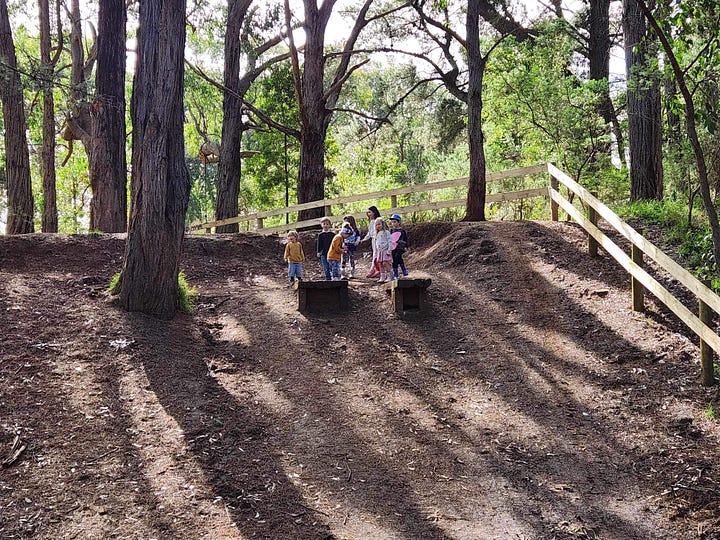
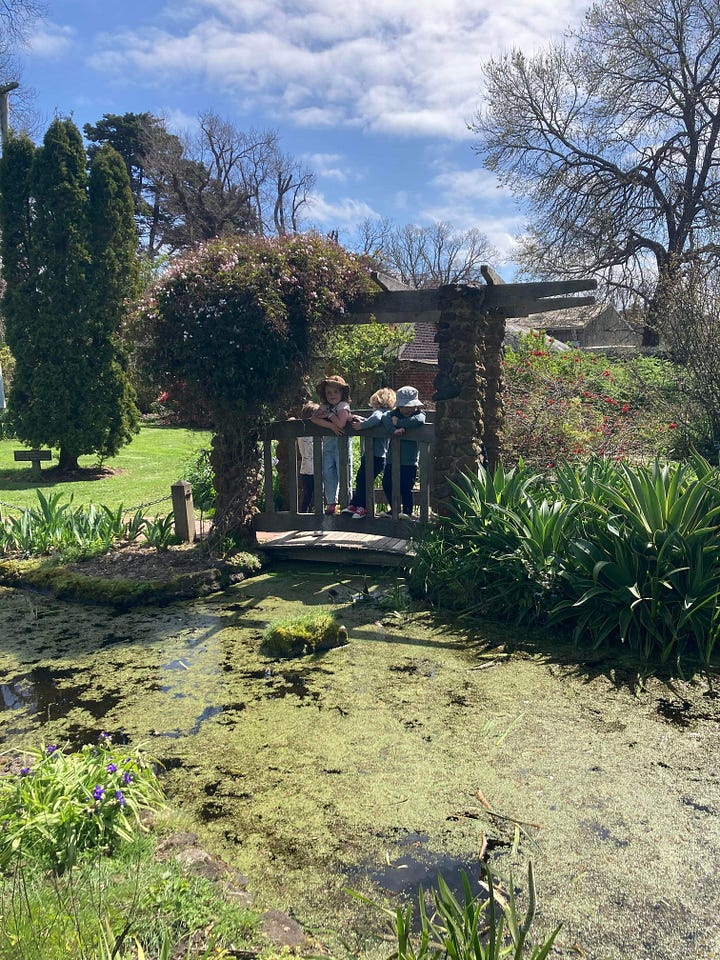
Even though we don’t look like a traditional homeschool co-op, in that free time is prioritised over structured learning, we still prefer to use this term as input from all group members is welcomed. One way we collaborate is by scheduling quarterly parent get-togethers at a local seaside cafe where, as well as relishing uninterrupted conversation, we create a list of places we want to explore for the upcoming term. We reflect on the locations that we’ve loved and want to return to and also brainstorm spots we’ve yet to encounter. Slowly, through our collective knowledge, we are discovering hidden gems scattered all over our region.
In the cooler, wetter months (Terms 2 and 3) our focus is on green spaces where the elements lend themselves to muddy play and bush walks. Once warmer weather returns (Terms 1 and 4) you will most likely find us at one of the many beaches we are fortunate to live so close to. Uncannily where we live, homeschoolers and tradies alike have a habit of dropping any and all plans for a leisurely day at the beach with friends if the sun's out.

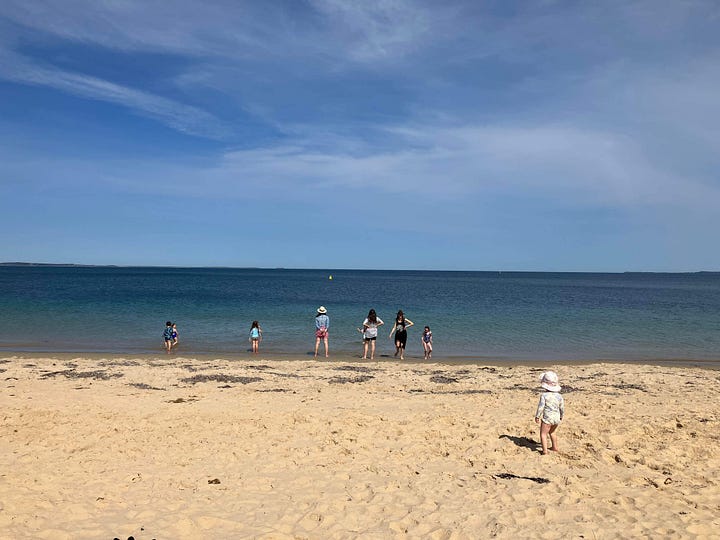
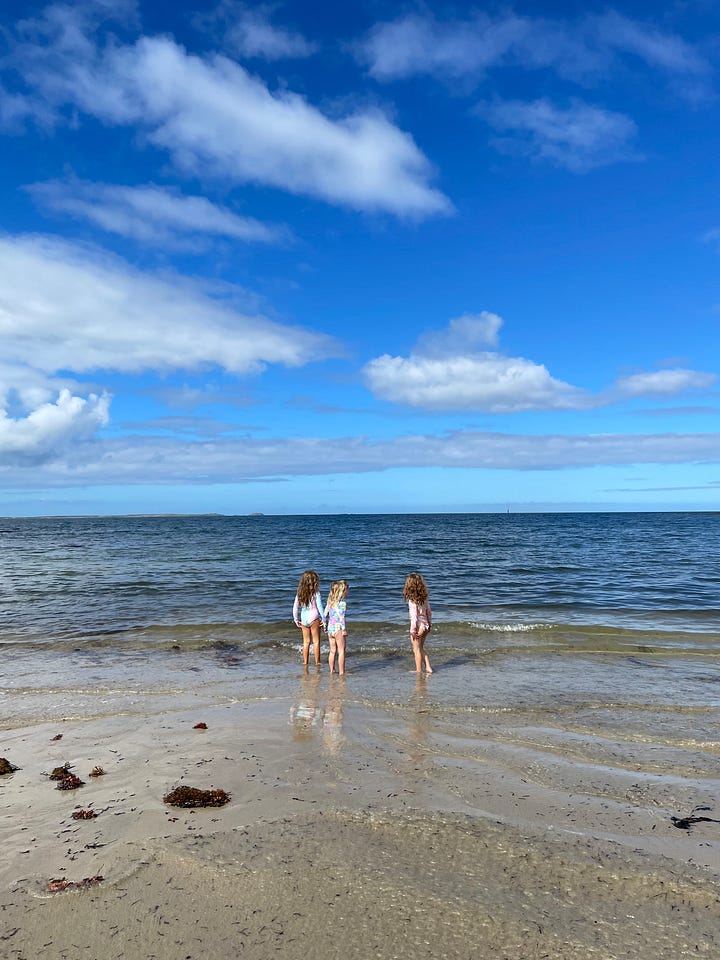
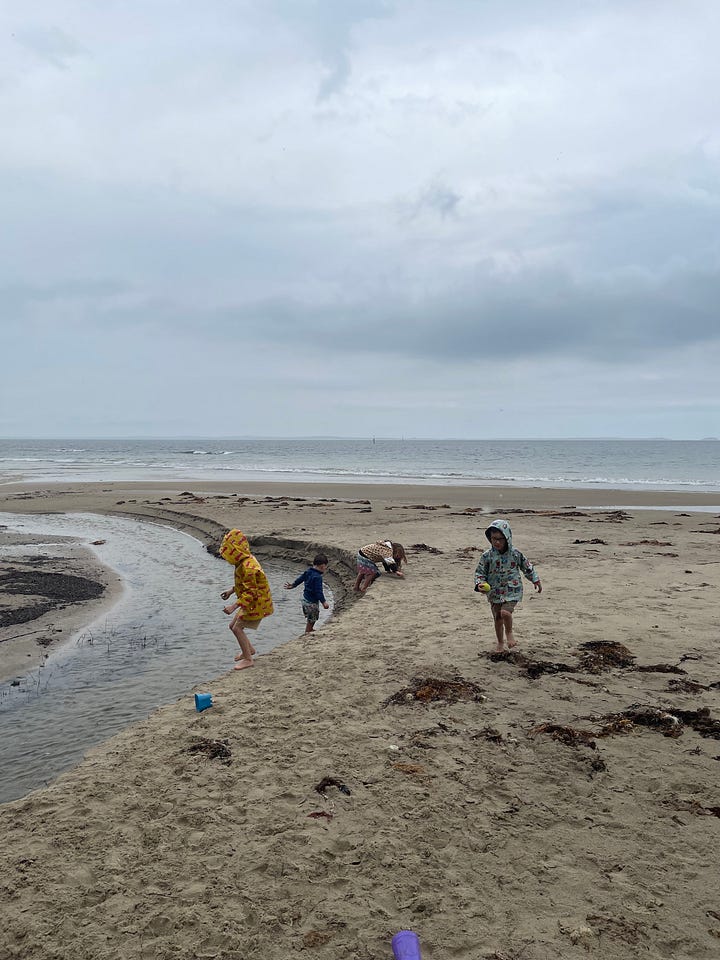
When I observe our children shrieking with delight as they jump through crashing waves, construct an elaborate dam in a creek, scaling trees and scrub in search of fairies and seek out wild foods to share, I am overcome with gratitude for this home educating lifestyle and the freedom and joy it allows for. I love that this is normal life for our kids, that a childhood rich in nature play will form the foundation of their lives. These languid days spent in the company of trees, seas and friends are not seen as special occasions or extra-curricular activities but are a quintessential part of a holistic upbringing. They are restorative anchor points in our weekly schedules, where young and old alike can have their needs mutually met.
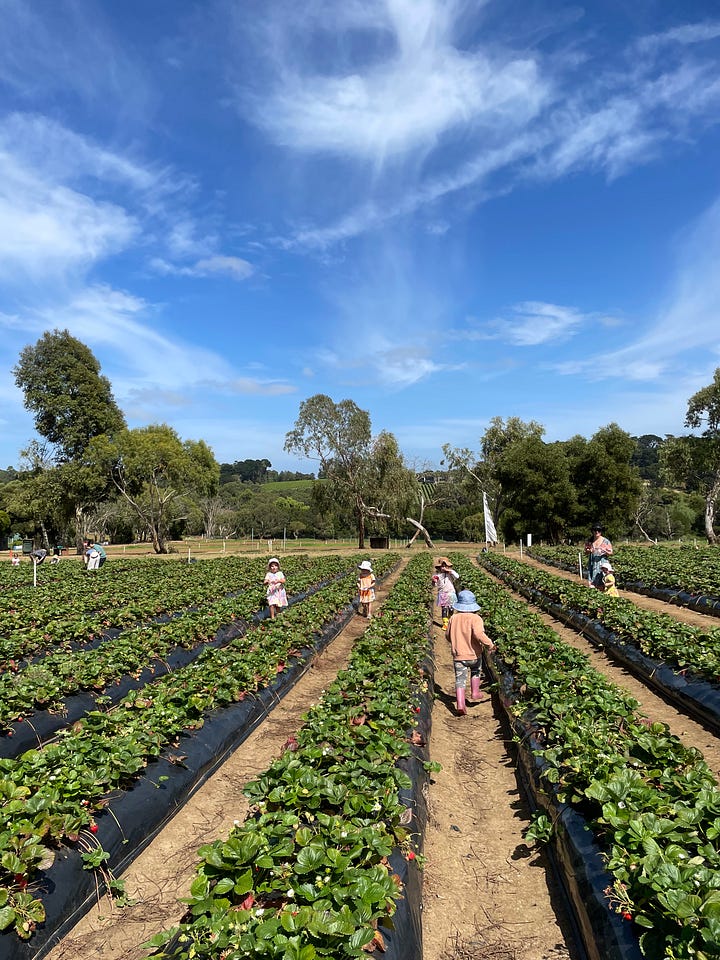
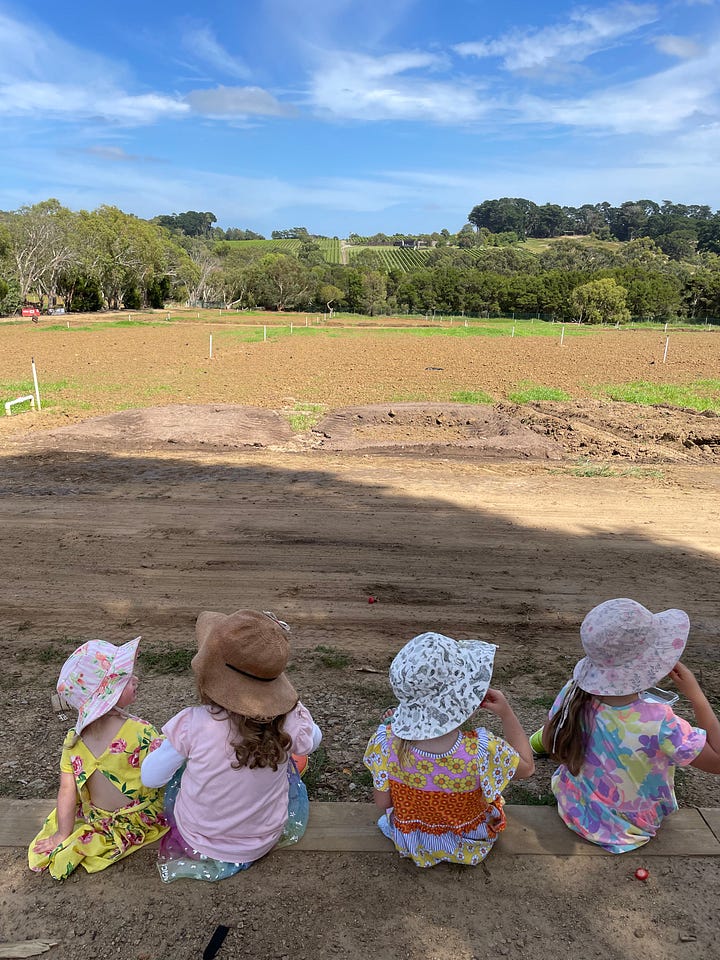
Wherever you live and no matter the age of your kids, I encourage you to seek out like minded folk and start social adventure groups of your own. My advice is to start small, spread the word and show up consistently. That third point being the most critical. Community isn’t a given when homeschooling, it needs to be prioritised and nurtured in the same way our connection to the natural world needs to be kindled. No day is wasted in the presence of mother nature with mates to marvel together at the wonders of flora and fauna.


